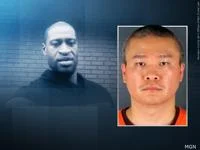Best CCTV Security Camera in Brampton
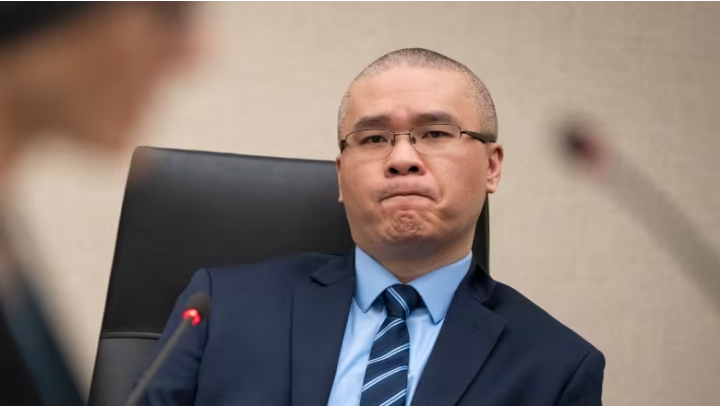
Former officer Tou Thao listens as prosecutor Erin Eldridge speaks during his sentencing hearing in Hennepin County District Court on Monday in Minneapolis. (Leila Navidi/Star Tribune/The Associated Press)
Best CCTV Camera in Brampton
Tou Thao, the last former Minneapolis police officer convicted in state court for his role in the killing of George Floyd, was sentenced Monday to four years and nine months — even as he denied wrongdoing.
Thao had testified he merely served as a “human traffic cone” when he held back concerned bystanders who gathered as former officer Derek Chauvin, who is white, knelt on Floyd’s neck for nine-and-a-half minutes while the Black man pleaded for his life on May 25, 2020.
A bystander video captured Floyd’s fading cries of “I can’t breathe.”
At the sentencing hearing, Thao spoke at length about his growth as a Christian during his 340 days behind bars. He said he was “distressed” by Floyd’s death but denied any role in it.
“I did not commit these crimes,” Thao said. “My conscience is clear. I will not be a Judas nor join a mob in self-preservation or betray my God.”
Hennepin County Judge Peter Cahill responded that he was hoping “for more than preaching” from Thao. “After three years of reflection, I was hoping for a little more remorse,” the judge said.
Thao’s lawyer, Robert Paule, said afterward that they will appeal. He declined further comment.
Home CCTV Camera in Brmapton
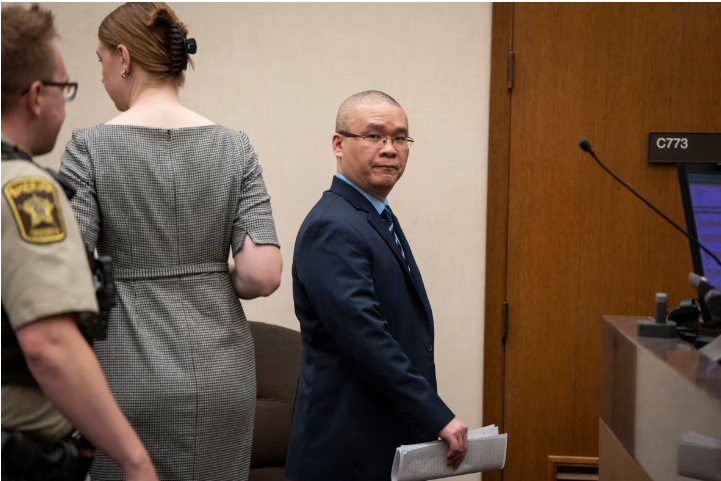
Tou Thao, who was a nine-year veteran of the Minneapolis police force, leaves the courtroom after his sentencing hearing on Monday in the death of George Floyd in May 2020. (Leila Navidi/Star Tribune/The Associated Press )
Cheap CCTV Camera in Brampton
Assistant Attorney General Erin Eldridge said during the hearing that Floyd’s final words “reverberated across the globe.”
Floyd, she said, “narrated his own death over the course of a restraint that lasted more than nine long minutes until he lost consciousness, stopped breathing and his heart stopped beating.”
Thao, she said, “stood by and allowed it to happen” and stopped others from moving in to help the dying man.
“He knew better, and he was trained to do better,” Eldridge said.
Floyd’s killing touched off protests worldwide and forced a national reckoning of police brutality and racism.
Cahill found Thao guilty in May of aiding and abetting second-degree manslaughter.
In his 177-page ruling, Cahill said Thao’s actions separated Chauvin and two other former officers from the crowd, including an emergency medical technician, allowing his colleagues to continue restraining Floyd and preventing bystanders from providing medical aid.
“There is proof beyond a reasonable doubt that Thao’s actions were objectively unreasonable from the perspective of a reasonable police officer, when viewed under the totality of the circumstances,” Cahill wrote.
He concluded: “Thao’s actions were even more unreasonable in light of the fact that he was under a duty to intervene to stop the other officers’ excessive use of force and was trained to render medical aid.”
Thao had rejected a plea bargain on the state charge, saying “it would be lying” to plead guilty when he didn’t think he was in the wrong. He instead agreed to let Cahill decide the case based on evidence from Chauvin’s 2021 murder trial and the federal civil rights trial in 2022 of Thao and former officers Thomas Lane and J. Alexander Kueng.
That trial in federal court ended in convictions for all three. Chauvin pleaded guilty to federal civil rights charges instead of going to trial a second time, while Lane and Kueng pleaded guilty to state charges of aiding and abetting manslaughter.
The sentence Cahill handed down Monday will run concurrently with Thao’s three-and-a-half-year sentence on his separate conviction on a federal civil rights charge, which an appeals court upheld on Friday. His state sentence was more than the four years recommended under Minnesota state guidelines.
The sentence will be served at federal prison with credit for time served before Thao is transferred to a Minnesota prison to serve out the remainder.
Lane and Kueng received three and three-and-a-half-year state sentences respectively, which they are serving concurrently with their federal sentences of 2 1/2 years and 3 years. Thao is Hmong American, while Kueng is Black and Lane is white.
Minnesota inmates generally serve two-thirds of their sentences in prison and one-third on parole. There is no parole in the federal system but inmates can shave time off their sentences with good behavior.
Best CCTV Security Services in Brampton
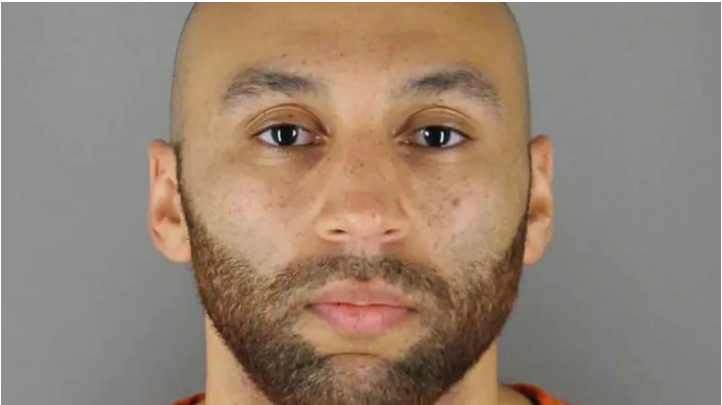
Former Minnesota police officer J. Alexander Kueng is seen in a booking photograph at Hennepin County Jail in Minneapolis, Minn., on June 3, 2020. Kueng, who is already serving a federal sentence for violating Floyd’s civil rights, was sentenced to three-and-a-half years in prison on a state charge of aiding second-degree manslaughter. (Hennepin County Sheriff’s Office/Reuters)
Best CCTV Camera in Brampton
J. Alexander Kueng sentenced on state charge of aiding 2nd-degree manslaughter
The former Minneapolis police officer who kneeled on George Floyd’s back while another officer kneeled on the Black man’s neck was sentenced Friday to three-and-a-half years in prison.
J. Alexander Kueng pleaded guilty in October to a state count of aiding and abetting second-degree manslaughter. In exchange, a charge of aiding and abetting murder was dropped. Kueng is already serving a federal sentence for violating Floyd’s civil rights, and the state and federal sentence will be served at the same time.
Kueng appeared at his sentencing hearing via video from a federal prison in Ohio. When given the chance to address the court, he declined.
Floyd’s family members had the right to make victim impact statements, but none did.
Attorney Ben Crump, who has represented the family, said in a statement before the hearing that Kueng’s sentencing “delivers yet another piece of justice for the Floyd family.”
“While the family faces yet another holiday season without George, we hope that moments like these continue to bring them a measure of peace, knowing that George’s death was not in vain,” he said.
Floyd died on May 25, 2020, after former Minneapolis police officer Derek Chauvin kneeled on his neck for nine-and-a-half minutes as Floyd repeatedly said he couldn’t breathe and eventually went limp. The killing, which a bystander recorded on video, sparked worldwide protests as part of a broader reckoning over racial injustice.
Kueng knelt on Floyd’s back during the restraint while a third officer, Thomas Lane, held Floyd’s legs and a fourth, Tou Thao, kept bystanders from intervening. All of the officers were fired and faced state and federal charges.
As part of his plea agreement, Kueng admitted that he held Floyd’s torso, that he knew from his experience and training that restraining a handcuffed person in a prone position created a substantial risk, and that the restraint of Floyd was unreasonable under the circumstances.
Matthew Frank, who led the prosecution for the Minnesota attorney general’s office, said repeatedly during the hearing that Floyd was a crime victim and that the prosecution “focused on the officers” who caused his death.
He said the case was not meant to be a broader examination of policing, but added that he hopes it will reaffirm that police officers cannot treat those “who are in crisis as non-people or second-class citizens.”
“Mr. Kueng was not simply a bystander that day. He did less than what some of the bystanders attempted to do in helping Mr. Floyd,” Frank said.
Kueng’s attorney, Thomas Plunkett, on Friday blamed the Minneapolis Police Department’s leadership for Floyd’s death and Kueng’s punishment.
He accused Medaria Arradondo, the police chief at the time Floyd died, of failing to implement training to encourage officers to intervene when one of their colleagues is doing something wrong.
“Mr. Kueng, the rookie, sits in prison one year for every day he served the city,” Plunkett said, referring to the three years he will spend behind bars.
He added: “Justice has become nothing more than mean-spirited revenge.”
Kueng’s sentencing brings the cases against all of the former officers a step closer to resolution, though the state case against Thao is still pending.
Then-chief Medaria Arradondo fired Kueng and the three other officers the day after Floyd’s killing and later testified at Chauvin’s trial that the officers did not follow training. The former head of training for the department has also testified that the officers acted in a way that was inconsistent with department policies.
Kueng’s sentencing brings the cases against all of the former officers a step closer to resolution, although the state case against Thao is still pending.
Thao previously told Judge Peter Cahill that it “would be lying” to plead guilty.
In October, Thao agreed to what’s called a stipulated evidence trial on the aiding and abetting manslaughter count. As part of that process, his attorneys and prosecutors are working out agreed-upon evidence in his case and filing written closing arguments. Cahill will then decide whether he is guilty or not.
If Thao is convicted, the murder count — which carries a presumptive sentence of 12-and-a-half years in prison — will be dropped.
Chauvin, who is white, was convicted of state murder and manslaughter charges last year and is serving 22 years in the state case.
He also pleaded guilty to a federal charge of violating Floyd’s civil rights and was sentenced to 21 years. He is serving the sentences concurrently at the Federal Correctional Institution in Tucson, Ariz.
Kueng, Lane and Thao were convicted of federal charges in February: All three were convicted of depriving Floyd of his right to medical care and Thao and Kueng were also convicted of failing to intervene to stop Chauvin during the killing.
Lane, who is white, is serving his two-and-a-half-year federal sentence at a facility in Colorado. He’s serving a three-year state sentence at the same time. Kueng, who is Black, was sentenced to three years on the federal counts; Thao, who is Hmong American, got a three-and-a-half-year federal sentence.
A former Minneapolis police officer pleaded guilty Monday to aiding and abetting second-degree manslaughter in the killing of George Floyd just as jury selection was about to begin. Another former officer waived his right to a jury trial, setting up an unusual proceeding in which the judge will issue a verdict after lawyers submit written arguments.
The plea deal for J. Alexander Kueng calls for 3½ years in prison, with prosecutors agreeing to drop a count of aiding and abetting second-degree murder. Kueng is the second officer to plead guilty to the state charge, following Thomas Lane, who pleaded guilty earlier this year.
Their former colleague, Tou Thao, rejected a plea deal earlier this year, telling a judge it “would be lying” to accept any such deal. On Monday, he agreed to go forward with a modified proceeding called a trial by stipulated evidence, in which he accepts certain evidence against him and waives his rights to a trial by jury and to testify.
The two sides will work out agreed-upon evidence against Thao and will prepare written closing arguments. They will submit those to Judge Peter Cahill by Nov. 17, with Cahill to rule on guilt or innocence within 90 days. The process includes an agreement to drop the aiding murder charge if Thao is convicted on the lesser charge. With such a conviction, Thao would likely get about four years in prison.
All three were convicted in February on federal counts of willfully violating the civil rights of Floyd, who was Black. Lane was sentenced to 2½ years in the federal case. Kueng was sentenced to three years and Thao was sentenced to 3½, but for some Floyd family members and activists, the penalties were too small.
Floyd, 46, died on May 25, 2020, after officer Derek Chauvin, who is white, pinned him to the ground with a knee on Floyd’s neck as he repeatedly said he couldn’t breathe. The killing, captured on widely viewed bystander video, sparked protests in Minneapolis and around the globe as part of a reckoning over racial injustice.
Home CCTV Camera in Brmapton
Cheap CCTV Camera in Brampton
Kueng and Lane helped to restrain Floyd, who was handcuffed. Kueng knelt on Floyd’s back and Lane held down Floyd’s legs. Thao kept bystanders from intervening during the 9½-minute restraint.
As part of his plea agreement, Kueng admitted that he held Floyd’s torso, that he knew from his experience and training that restraining a handcuffed person in a prone position created a substantial risk and that the restraint of Floyd was unreasonable under the circumstances.
Kueng’s plea called for him to serve his state and federal terms concurrently, just as Lane is doing.
Chauvin was convicted of state murder and manslaughter charges last year and is currently serving 22½ years in the state case. He also pleaded guilty to a federal charge of violating Floyd’s civil rights and was sentenced to 21 years for that and for an unrelated case involving a 14-year-old boy. He is serving the sentences at the same time at the Federal Correctional Institution in Tucson, Ariz.
Kueng is Black, Lane is white and Thao is Hmong American. They were convicted of federal charges in February after a month-long trial that focused on the officers’ training and the culture of the police department. All three were convicted of depriving Floyd of his right to medical care, and Thao and Kueng were also convicted of failing to intervene to stop Chauvin during the killing.
If Kueng had been convicted of aiding and abetting second-degree murder, he would have faced a presumptive 12½ years in prison.
Thomas Lane sentenced to prison on federal civil rights charge in killing of George Floyd
Best CCTV Security Services in Brampton
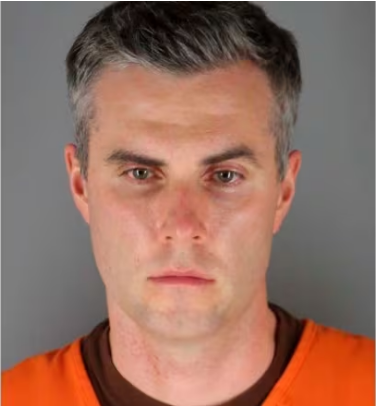
Former Minneapolis police officer Thomas Lane is shown in this June 3, 2020, photo provided by the Hennepin County Sheriff’s Office in Minnesota. Lane has been sentenced to 2½ years in prison on a federal civil rights charge for his role in the killing of George Floyd. (Hennepin County Sheriff’s Office/The Associated Press)
Cheap CCTV Camera in Brampton
Former Minneapolis police officer Thomas Lane has been sentenced to 2½ years in prison on a federal civil rights charge for his role in the killing of George Floyd.
U.S. District Judge Paul Magnuson sentenced Lane on Thursday for his February conviction of depriving Floyd of medical care as he lay dying under officer Derek Chauvin’s knee in May 2020.
Magnuson said Lane, who faces sentencing in September on state charges in Floyd’s killing, will remain free on bond until Oct. 4, when he must turn himself in to authorities.
Floyd’s family members had asked Magnuson to give Lane the stiffest sentence possible, with brother Philonise Floyd rejecting the idea that Lane deserved any mercy for asking his colleagues twice if George Floyd should be shifted from his stomach to his side.
“Officer Lane did not intervene in one way or another,” he said.
Prosecutor Manda Sertich had also argued for a higher sentence, saying that Lane “chose not to act” when he could have saved a life.
“There has to be a line where blindly following a senior officer’s lead, even for a rookie officer, is not acceptable,” she said.
Federal prosecutors had asked for a sentence of up to 6½ years, in line with federal guidelines.
“Mr. Lane, this is a very serious offence, in which a life was lost,” Magnuson said. “The fact that you did not get up and remove Mr. Chauvin when Mr. Floyd became unconscious is a violation of the law.”
But the judge also held up 145 letters he said he had received supporting Lane, saying he had never received so many on behalf of a defendant. And he faulted the Minneapolis Police Department for sending Lane with another rookie officer on the call that ended in Floyd’s death.
Lane did not speak at the hearing, and neither he nor his lawyer commented to reporters afterward.
Lane’s lawyer, Earl Gray, had asked for a little over two years. He had argued that Lane, a rookie officer, was the least culpable of the officers in part because he had asked his colleagues twice whether Floyd should be turned on his side but was rebuffed by Chauvin.
“Any reasonable person should just be disgusted, should be infuriated” that Lane was ever charged, Gray told jurors in his closing argument.
Lane faces a separate sentencing on Sept. 21 in state court after changing his plea to guilty to a reduced charge of aiding and abetting manslaughter.
Lane and fellow rookie, J. Alexander Kueng, helped restrain Floyd while Chauvin, who is white and was the most senior officer on the scene, killed Floyd by kneeling on his neck for nearly 9½ minutes, despite the handcuffed Black man’s fading pleas that he couldn’t breathe.
Chauvin’s partner, Tou Thao, helped hold back an increasingly concerned group of onlookers outside a Minneapolis convenience store where Floyd, who was unarmed, was accused of trying to pass a counterfeit $20 US bill in May 2020.
Lane testified he didn’t realize how dire Floyd’s condition was until paramedics turned him over. Sertich, the prosecutor, countered that his expressions of concern showed he knew Floyd was in distress but “did nothing to give Mr. Floyd the medical aid he knew Mr. Floyd so desperately needed.”
Chauvin pleaded guilty to separate federal civil rights charges in December in Floyd’s killing and in an unrelated case involving a Black teenager. That netted a 21-year sentence when he appeared before Magnuson two weeks ago.
Magnuson had harsh words for Chauvin at the hearing, saying, “You absolutely destroyed the lives of three young officers by taking command of the scene.”
Chauvin was already serving a 22½-year state court sentence for second-degree murder and second-degree manslaughter. His federal and state sentences are running concurrently, and he has not yet been transferred to the federal prison system.
Magnuson has not set sentencing dates on the federal charges for Thao, who is Hmong American, and Kueng, who is Black.
Thao and Kueng are free on bond pending sentencing. The pair turned down plea deals in the state’s case and are scheduled to go on trial Oct. 24 on state charges of aiding and abetting both second-degree murder and second-degree manslaughter.
A U.S. federal judge on Thursday sentenced Derek Chauvin to 21 years in prison for violating George Floyd’s civil rights, telling the former Minneapolis, Minn., police officer that what he did was “simply wrong” and “offensive.”
District Judge Paul Magnuson sharply criticized Chauvin for his actions on May 25, 2020, when he pinned Floyd to the pavement outside a Minneapolis corner store for more than nine minutes as he lay dying.
“I really don’t know why you did what you did,” Magnuson said. “To put your knee on a person’s neck until they expired is simply wrong. Your conduct is wrong and it is offensive.”
Magnuson, who presided over the federal trial and convictions of three other officers at the scene earlier this year, blamed Chauvin alone for what happened. Chauvin was by far the senior officer present as police tried to arrest Floyd while responding to a 911 call accusing him of using a counterfeit $20 bill to buy cigarettes. Chauvin rebuffed questions from one of the other officers about whether Floyd should be turned on his side.
“You absolutely destroyed the lives of three young officers by taking command of the scene,” he said.
Even so, Magnuson’s sentence was at the low end of the 20 to 25 years called for in a plea agreement in which he will serve the federal sentence at the same time he serves his 22-and-a-half-year sentence on state charges of murder and manslaughter.
Because of differences in parole eligibility in the state and federal systems, it means that Chauvin will serve slightly more time behind bars than he would have on the state sentence alone. He would be eligible for parole after 15 years on the state sentence, but must serve almost 18 years of his federal time before he could be released.
He will also do his time in the federal system, where he may be safer and may be held under fewer restrictions than in the state system.
Chauvin’s attorney Eric Nelson had asked for 20 years, arguing that Chauvin was remorseful and would make that clear to the court. But Chauvin, in brief remarks, made no direct apology or expression of remorse to Floyd’s family.
Instead, he told the family that he wishes Floyd’s children “all the best in their life” and that they have “excellent guidance in becoming good adults.”
Chauvin wore an orange prison uniform and a protective mask, according to pool media reports from the courtroom. He waved at family and friends in the gallery as he entered. The media reports made no mention of visible reaction by Chauvin to any part of the hearing.
Prosecutor LeeAnn Bell asked Magnuson to give Chauvin the full 25 years possible in the plea deal, highlighting the “special responsibility” that he had as a police officer to care for the people in his custody.
“He wasn’t a rookie,” Bell said. “He knew what his training was…. He admitted before this court that his conduct was wrong and he did it anyway.”
Floyd’s brother Philonise also asked for the maximum possible sentence.
“My family and I have been given a life sentence,” the man said. “We will never get George’s life back.”
Chauvin’s mother, Carolyn Pawlenty, who also appeared at his state sentencing, told Magnuson that her son didn’t go to work intending to kill someone.
“Many things have been written about him that are totally wrong such as he’s a racist, which he isn’t, that he has no heart,” she said.
“I believe it is God’s will for all of us to forgive. Everyone in the state of Minnesota needs to heal and remember that all life matters, no matter the colour of your skin. Every life matters,” she added.
In entering his federal plea last year, Chauvin for the first time admitted that he kept his knee on Floyd’s neck — even as Floyd pleaded, “I can’t breathe,” and then became unresponsive — killing him. Chauvin admitted he willfully deprived Floyd of his right to be free from unreasonable seizure, including unreasonable force by a police officer.
Magnuson has not set sentencing dates for the three other officers who were on the scene — Tou Thao, J. Alexander Keung and Thomas Lane — who were convicted in February of federal civil rights charges.
Lane is also due to be sentenced Sept. 21 after pleading guilty in state court to aiding and abetting second-degree manslaughter. Thao and Kueng turned down plea deals and are due to be tried in state court Oct. 24 on aiding and abetting charges.

